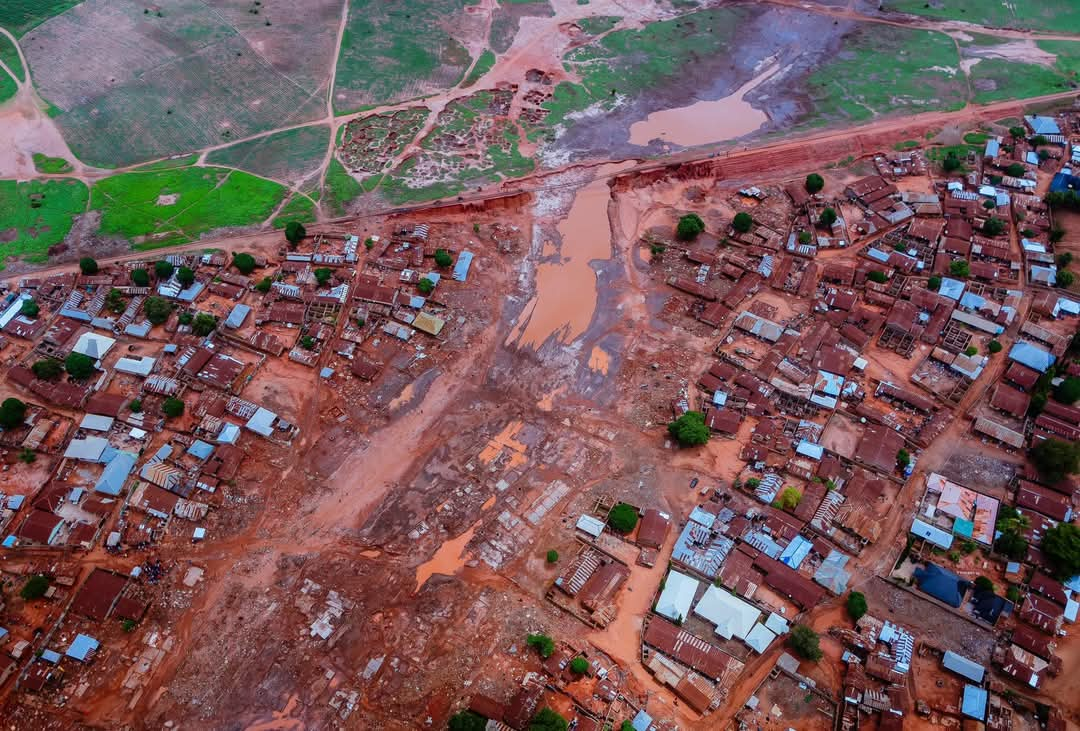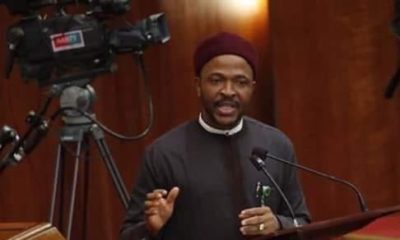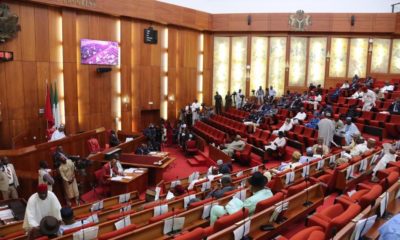News
BNers, Mokwa Needs Us! Here’s How to Support the Flood Victims Today
Mokwa is hurting. Over 150 lives lost, thousands displaced. BNers, here’s how you can support those affected and make a real difference today.

Photo Credit: Sadeeq Kurbe/X
Flash floods triggered by torrential rainfall have wreaked havoc in the central Nigerian town of Mokwa, in Niger State, claiming more than 150 lives and displacing over 3,000 people, according to reports. The flooding, which began on Tuesday, 28 May 2025, has been described as the worst in the area in six decades.
The deluge submerged entire neighbourhoods, swept away homes with residents inside, and destroyed roads, vehicles and vital infrastructure. Among the most severely affected areas are the Tiffin Maza and Anguwan Hausawa districts. According to the Niger State Emergency Management Agency, search and rescue operations are ongoing, but with over 500 people still missing, the chances of finding survivors are increasingly slim. Local officials confirmed that bodies have likely been swept downstream into the Niger River.
Eyewitnesses recounted harrowing scenes of destruction. They told the BBC that they saw their homes and family members get washed away. The Nigerian Red Cross described the situation as one of “significant loss of life and widespread distress.”
The disaster also caused the collapse of the Mokwa Bridge on 28 May, cutting off a crucial link on the A1 highway and disrupting economic activities across the region. Two other roads and a secondary bridge were also washed away. Excavator teams have been deployed to retrieve bodies trapped under debris, with local authorities warning that disease outbreaks may soon follow if immediate sanitation measures are not taken.
Mokwa, a market town with an estimated population of over 416,000, sits along the southern banks of the Niger River. It is a key trade point connecting northern farmers and southern buyers. The town’s vulnerability to flooding has long been known, especially during Nigeria’s rainy season, which lasts from April to October.
Government Response
In response to the tragedy, President Bola Ahmed Tinubu has ordered the release of ₦2 billion for the immediate reconstruction of Mokwa and the resettlement of displaced residents. Additionally, 20 trucks of food supplies have been dispatched for distribution to those affected.
Vice President Kashim Shettima, who led a Federal Government delegation to the area, conveyed the President’s condolences. “President Tinubu has directed me to come and represent him and asked me to tell you that his heart is with you,” he said, assuring residents that the government will do everything possible to ease their suffering.
The Vice President also announced that electricity transformers would be delivered to replace those destroyed by the floods. Meanwhile, the Minister of State for Agriculture, Senator Abdullahi Sabi, an indigene of Niger State, has been directed to temporarily relocate to Mokwa to oversee the rebuilding of collapsed bridges and coordinate recovery efforts.
Furthermore, the Ministries of Environment and Agriculture have been tasked with beginning the immediate reconstruction of the town’s drainage systems to prevent future disasters.
Urgent Needs of Displaced Residents
Survivors in Mokwa are in dire need of essential items such as food, clean drinking water, shelter, and medical care. Overcrowded shelters pose a high risk for disease outbreaks, particularly cholera, with children, the elderly, and persons with disabilities facing heightened vulnerability.
Intermediate needs include blankets, clothing, hygiene products, and cooking utensils. Mental health support and protection services are also critical in this emergency.
How You Can Help
-
Donate: Contribute funds, food, and medical supplies to trusted local and international organisations working on the ground.
-
Raise Awareness: Use your social media platforms, blogs, and community networks to highlight the crisis and galvanise support.
-
Volunteer: If you are in the region or can travel safely, consider offering your time and skills to relief agencies.
-
Advocate for Long-term Solutions: Encourage governments and civil society organisations to invest in resilient infrastructure, improve drainage systems, and adopt comprehensive flood control measures.
-
Partner with NGOs: Work with humanitarian groups to coordinate the delivery of aid and services to those most in need.




















